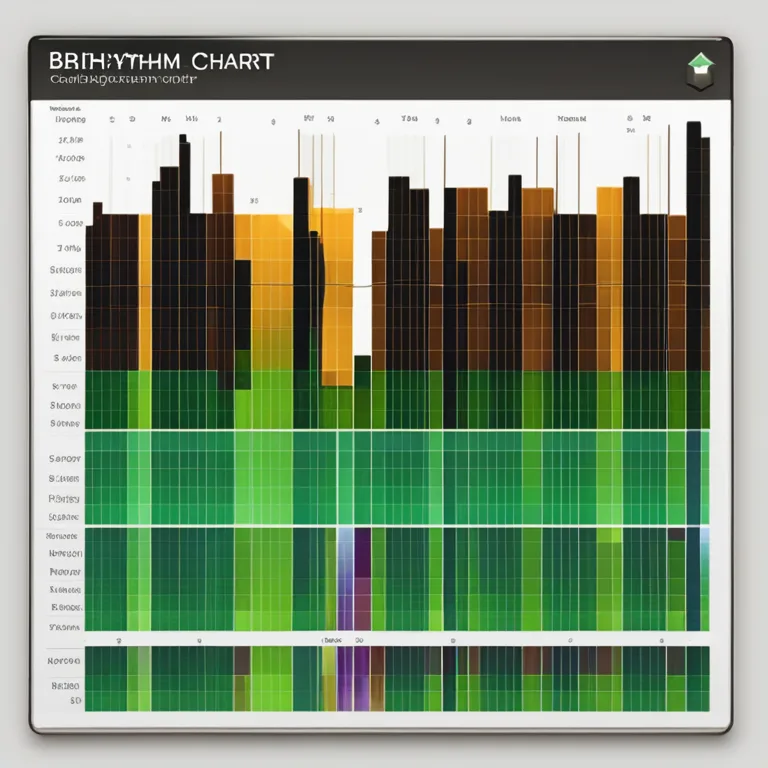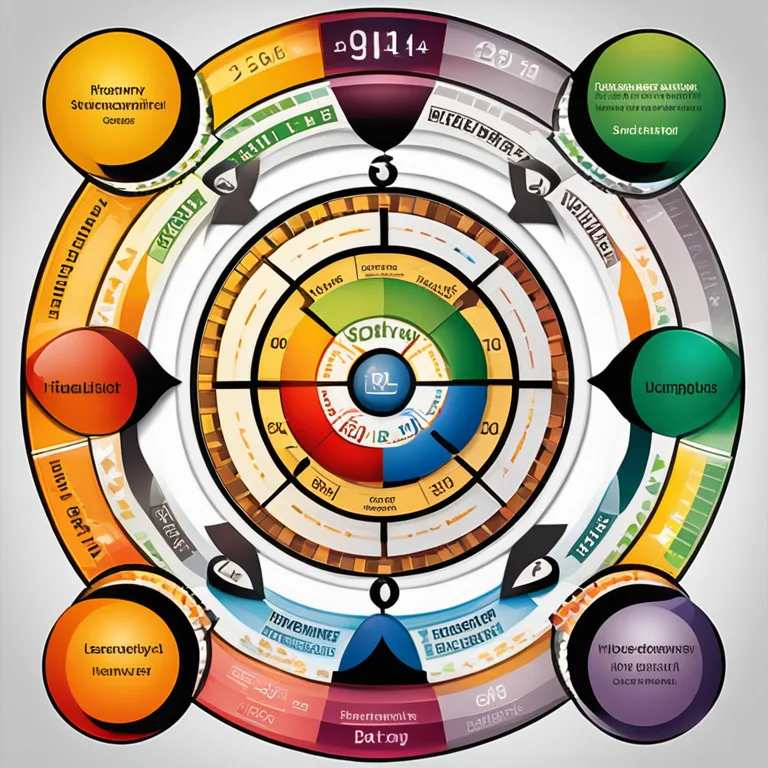
Biorhythm Compatibility: Harmonizing Personal Cycles
Explore the significance of biorhythm compatibility and its potential impact on personal relationships. Learn the essentials and how to chart your combined cycles.
article by Adrian Wallace
Introduction to Biorhythms
In the realm of personal well-being, biorhythms are believed to be invisible life force rhythms that affect our daily lives. Stemming from a theory developed in the early 20th century, these intrinsic cycles purportedly regulate various aspects of our physical, emotional, and intellectual states. As unique as our fingerprints, our biorhythms play a subtle yet profound role in our interactions, and by extension, in our relationships. The contemporary exploration in biorhythm compatibility seeks to harmonize these individual patterns to enhance personal connections.

Understanding Biorhythmic Patterns
Human biorhythms are classified into three primary cycles: physical, which runs on a 23-day cycle governing stamina and coordination; emotional, with a 28-day cycle influencing mood and sentiments; and intellectual, circling every 33 days, overseeing mental acuity and comprehension. These cycles start from our birth date and ebb and flow in positive (high phase) and negative (low phase) intervals. Accurate tracking, facilitated by advanced algorithms and digital platforms in 2024 and beyond, allows individuals to glean valuable insights into their personal cycles.

Biorhythm Compatibility and Relationships
Compatibility in relationships can often seem like a mysterious blend of chemistry and timing. Biorhythm compatibility proponents argue that synchronizing and understanding these innate cycles between individuals can lead to deeper connections. It posits that when two people's cycles are in tune, especially during high phases, they're more likely to experience harmony and constructive interactions. Conversely, awareness of discordant phases can help couples navigate through challenging periods with empathy and strategy.

Charting Your Biorhythm Compatibility
Creating a biorhythm compatibility chart involves calculating the individual cycles of two people and comparing them. Today's online calculators and apps make it straightforward; by entering birth dates, these tools generate visual charts. Patterns that run parallel to or overlap each other often signal compatibilities, while intersecting lines may spotlight potential friction points. Practitioners recommend using these charts as a guide for planning significant activities and understanding interpersonal dynamics.

Scientific Scrutiny and Individual Application
It's important to note that the scientific community at large remains skeptical of biorhythms' predictive validity. As of 2024, empirical research hasn't conclusively supported the biorhythm theory's reliability. However, many individuals find personal value in monitoring their rhythms, citing subjective improvements in self-awareness and communication in their relationships. Ultimately, individual experiences and the personal application of biorhythm compatibility charts inform personal beliefs and practices.
Incorporating Biorhythms into Daily Life
While biorhythms might not be universally accepted, incorporating an awareness of one's personal cycles and those of close partners can be an intriguing element of self-exploration. Whether planning a romantic getaway, a business venture, or understanding emotional ebbs and flows, charting biorhythms can provide an additional layer of insight. Advocates suggest observing patterns over time to identify trends and leverage harmonious periods for making the most of joint endeavors.
Published: 12/28/2023
Modified: 12/28/2023
More predictions
Come back here soon to learn more about yourself and your future


Exploring Human Biorhythmic Cycles
Explore the fascinating concept of biorhythms and their influence on physical, emotional, and intellectual faculties in humans.


Unlocking Your Body's Natural Clock
Explore the intriguing world of biorhythms and discover how they influence your physical, emotional, and intellectual states.


Biorhythm Wheel: Unlocking The Secrets
Explore the intriguing world of the biorhythm wheel to understand your physical, emotional, and intellectual cycles for enhanced well-being.